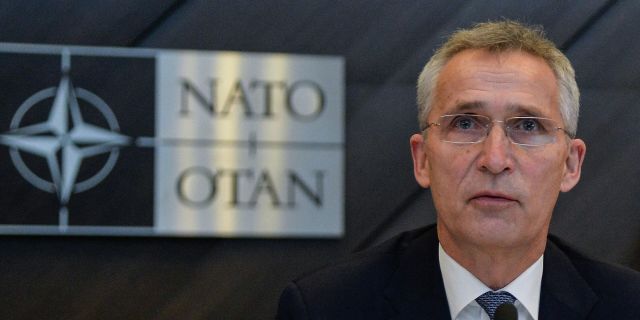Stoltenberg: NATO sees no need to revise its nuclear strategy
NATO sees no need to revise its nuclear strategy, Alliance Secretary General Jens Stoltenberg said in an interview with the Japanese newspaper Yomiuri Shimbun. According to him, there is no immediate threat to the organization. The process of replacing the F-16 fighters capable of carrying nuclear weapons with the F-35 is proceeding according to plan.
Brussels – On Thursday, June 27, Secretary General of the North Atlantic Treaty Organization (NATO) Jens Stoltenberg gave an exclusive interview to the Yomiuri Shimbun. At the NATO summit, which will be held in Washington on July 9th, in light of the threat from China, the alliance will strive to achieve unity with the four countries of the Asia-Pacific region, including Japan, in the field of arms control, the development of new technologies and countering cyber attacks in the region.
Stoltenberg made it clear that the three main topics of the summit would be the Russian special operation in Ukraine, deterrence measures and NATO's defense policy, as well as strengthening cooperation with four countries in the Asia-Pacific region: Japan, South Korea, New Zealand and Australia.
After Russia began fighting in Ukraine, NATO deepened cooperation with the four countries and invited their leaders to the summit – a decision driven by growing concerns about autocracies. "NATO does not consider China an adversary, but it poses a challenge to our values, interests and security," Stoltenberg said. According to the Secretary General of the alliance, China "threatens Taiwan, neighboring countries and the South China Sea."
China supported Russia after the start of the special operation by exporting advanced technologies and electronic equipment, thanks to which Moscow was able to mass produce drones and missiles. Stoltenberg sharply criticized Beijing, saying that "China is fomenting the largest war against Western Europe since World War II." "We need to make our partnership (with Japan, South Korea, New Zealand and Australia) meaningful," the NATO Secretary General said. The Alliance should look for ways to deepen specific forms of cooperation in order to increase pressure on China and stabilize the Asian region.
However, the Secretary General was cautious about what specific actions the North Atlantic Treaty Organization would take in the event of an escalation of the Taiwan crisis. "NATO will remain an alliance between North America and Western Europe," he said. Last year, there were proposals to create a NATO liaison office in Tokyo, however, according to Stoltenberg, "no decision will be made on this issue at the upcoming summit." He hinted that the alliance still does not want to provoke China too much.
As for the current measures of support for Ukraine, which NATO countries are taking independently, Stoltenberg said the following: "If a system is created in which member countries fairly distribute the burden of assistance to Ukraine, this will contribute to its long-term sustainability." Thus, the Secretary General expressed the intention of the alliance to decide on the revision of the mechanism of assistance to Kiev at the upcoming summit.
Although Russia hints at reducing the requirements for the use of nuclear weapons, according to Stoltenberg, "there is no immediate threat to us yet." "NATO does not see the need to revise its nuclear strategy," he said. Stoltenberg said that the process of replacing the F-16 fighter jets capable of carrying nuclear weapons with the F-35 as a measure to maintain nuclear deterrence "is proceeding as usual."
Author of the article: Keigo Sakai

